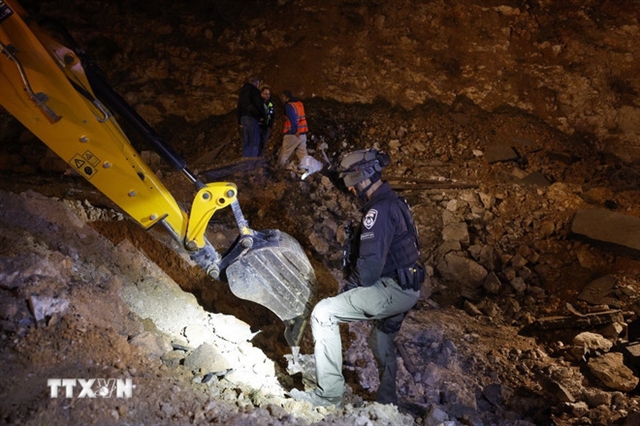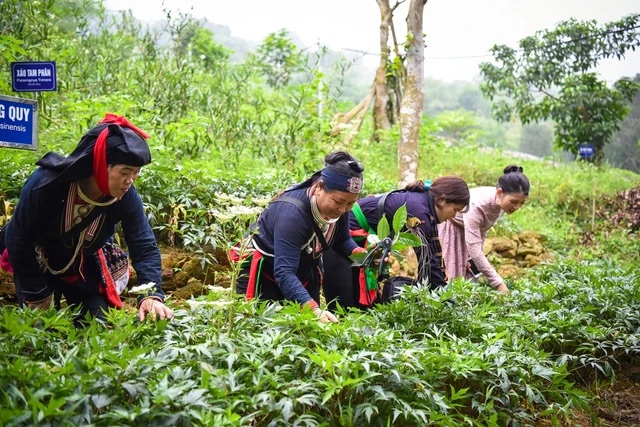 Environment
Environment
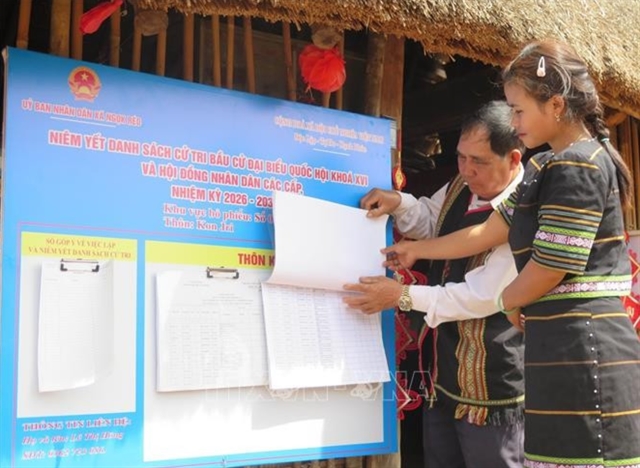
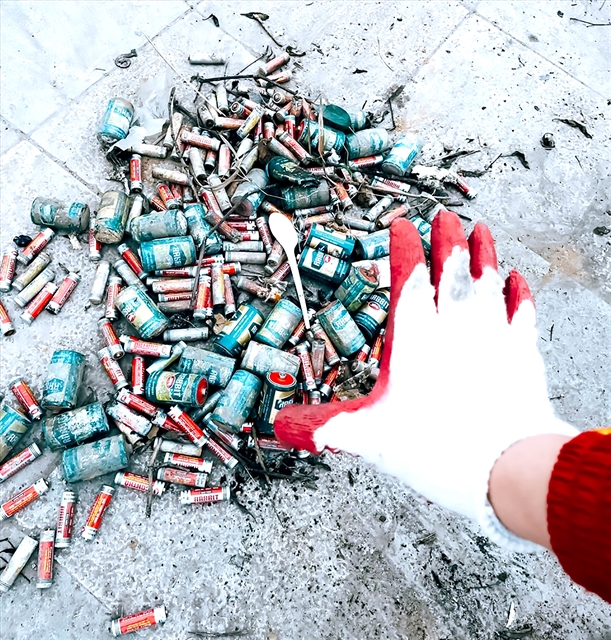 |
| Some of the old batteries that Triệu Thị Thủy Tiên, a university student in Hà Nội, has collected for recycling. — Photo courtesy of Triệu Thị Thủy Tiên |
HÀ NỘI — Conscious of the adverse effects of batteries on health and the environment, many people have been working to dispose of and recycle these devices correctly and are advocating for others to do the same.
Triệu Thị Thủy Tiên, a student from the Vietnam University of Commerce in Hà Nội, has been sorting out and recycling more than 300 old batteries.
Tiên told Lao Động (Labour) newspaper that during her days in school, she learned about the pollution effects these devices can have on the environment if discarded incorrectly.
Since then, she has been using empty plastic bottles to store old batteries, which also reduces the risks of their emitting toxic substances to the surrounding environment when left in high humidity.
Tiên also takes a step further and advocates for her family and friends against throwing unusable batteries together with household waste but bringing them to recycling points instead.
Tiên said: “I am aware of the impacts old batteries can have on the environment and our health, so I decided to live ‘greener.’
“I hope that this will not be a spontaneous movement but a good habit of every one of us.”
For the past few months, Nguyễn Hồng Vân and her colleagues at an education company in Cầu Giấy District have also been collecting old batteries for recycling.
Initiated by Vân, the movement has been well-received by everyone in the office, with hundreds of batteries collected.
Vân said: “Actually, most of everyone is aware of how polluted the environment is, but throwing one or two old batteries into the trash can is much easier than bringing them to the collection points for recycling.
“It is not easy to change others’ behaviours, so instead of persuasion, my colleagues and I try to continue this activity and stay determined in collecting old batteries to protect the environment.”
A hamlet in Hoài Đức District of Hà Nội has been running a programme collecting old batteries with all of its residents for more than one year.
Called the “Houses of Batteries”, the project set up collection points across Nhuệ Hamlet, which have received thousands of unusable batteries for recycling.
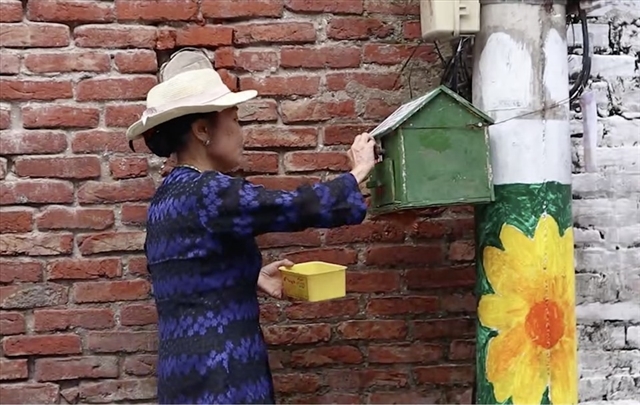 |
| A resident in Nhuệ Hamlet of Hoài Đức District, Hà Nội, puts old batteries into a "House of Batteries" in the area. — Photo laodong.vn |
Each month, the hamlet’s officers and Youth Union members take old batteries from these points and send them to recycling facilities.
The movement also contributes to forming people’s habits in waste sorting in the area.
Đàm Quang Bính, head of the hamlet, said that at first, the programme was piloted with six collection points and achieved promising results.
Alongside the increase in battery collection points, they also set up loudspeakers to spread the message to locals so that they understand the benefits of collecting old batteries and the harms of discarding batteries without treatment.
According to the Ministry of Natural Resources and Environment, substances inside batteries such as mercury, lead and cadmium can lead to pollution and have negative impacts on human health throughout the process from manufacturing to disposal.
If discarded without proper treatment, the battery substances can seep into the soil and contaminate the land and water sources for up to 50 years.
Emissions released from burning garbage containing untreated batteries can also pollute the atmosphere and cause direct harm to people’s health.
There are also risks of explosions when burning this type of trash, especially with lithium-ion batteries used in mobile phones.
This is why actions like Tiên’s, Vân’s, and Nhuệ Hamlet’s need to be continued to raise people’s awareness and minimise the negative effects on the environment. — VNS


